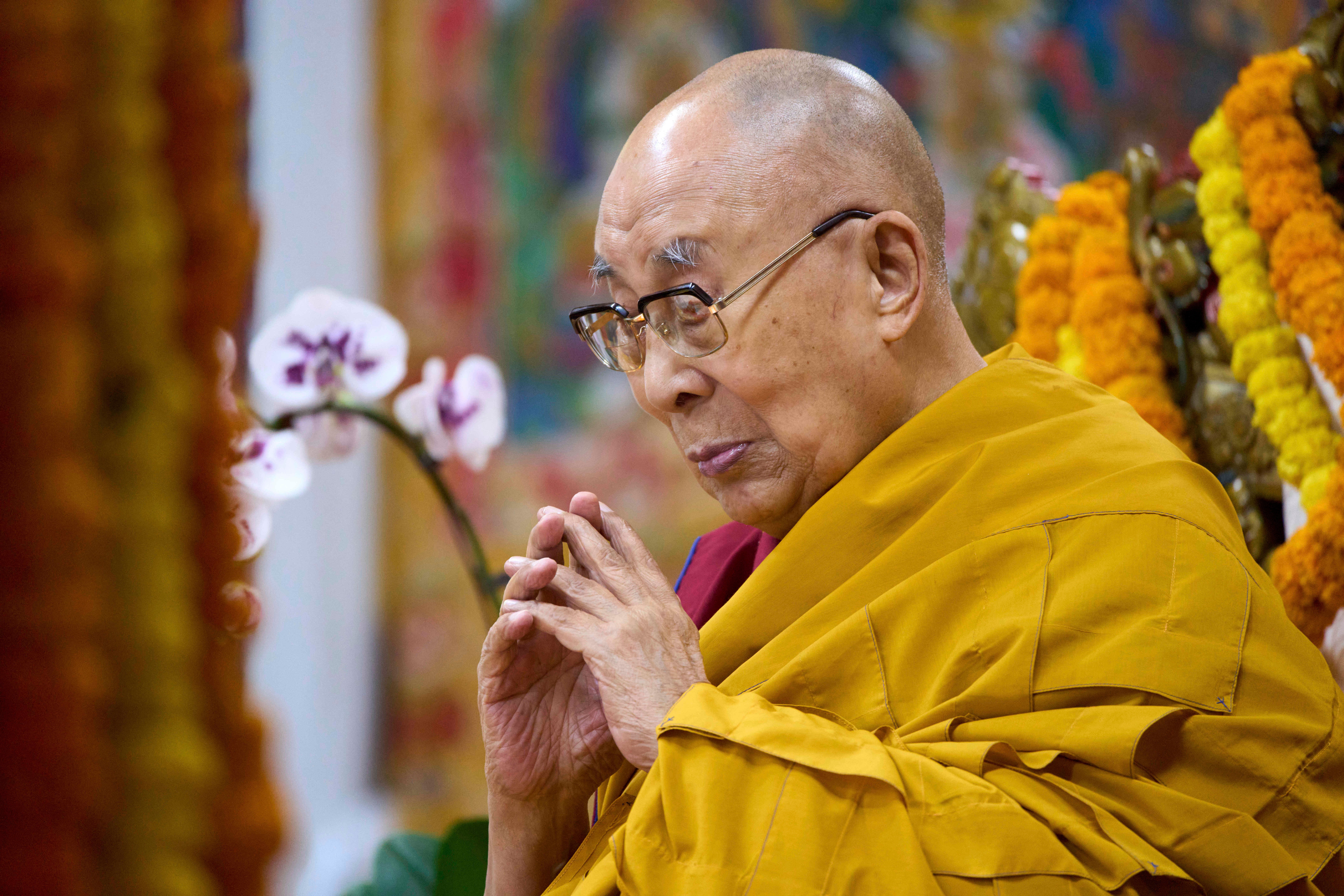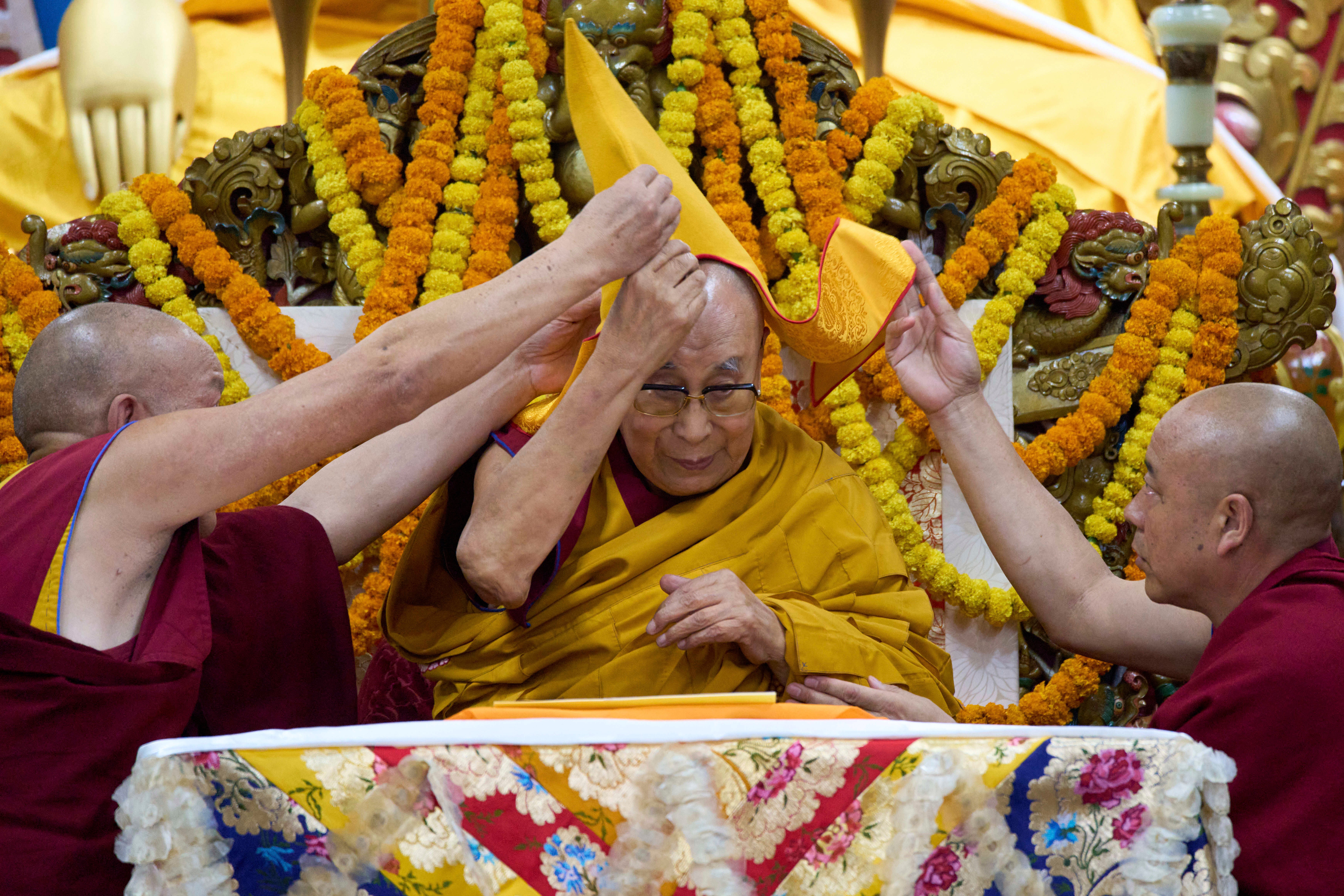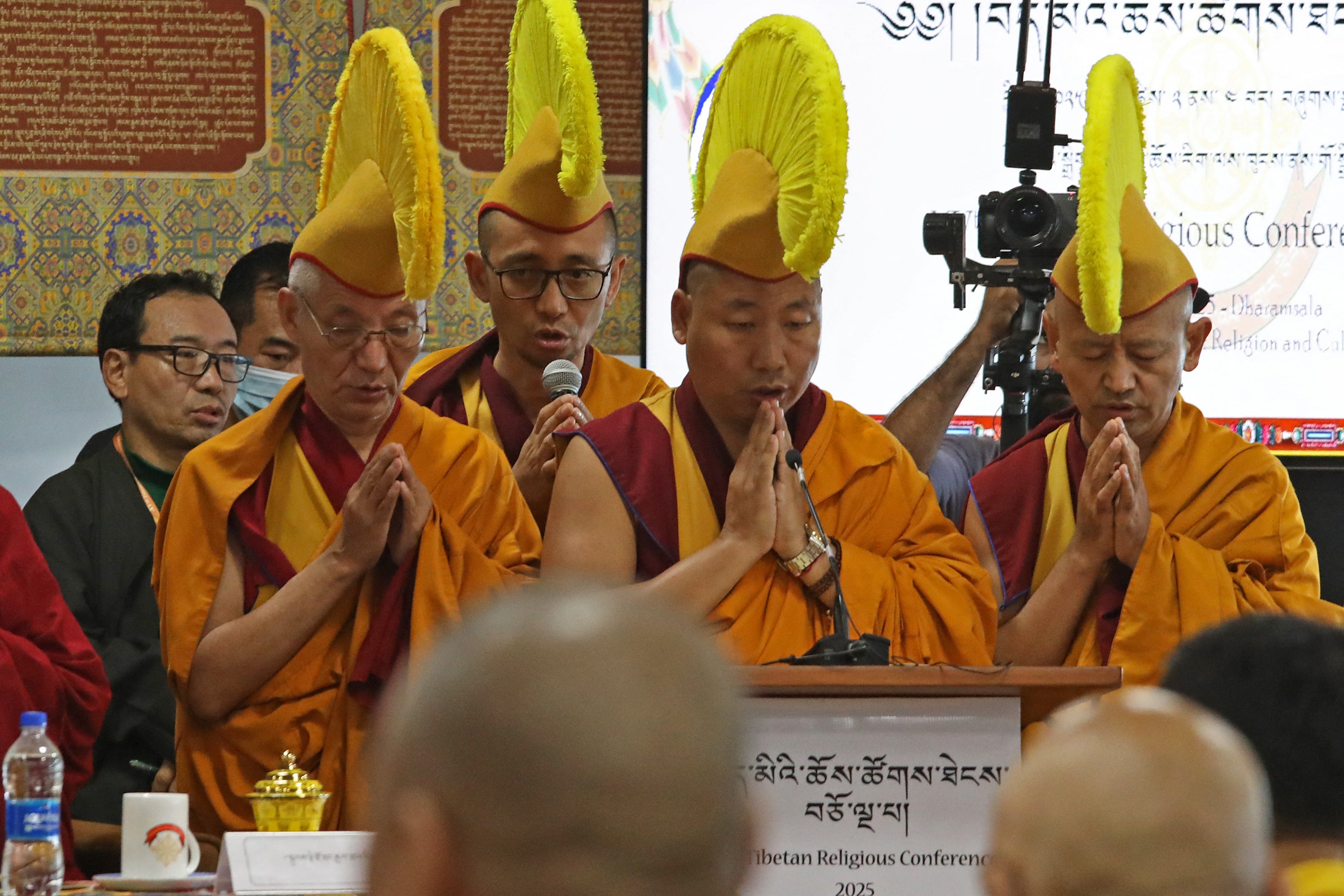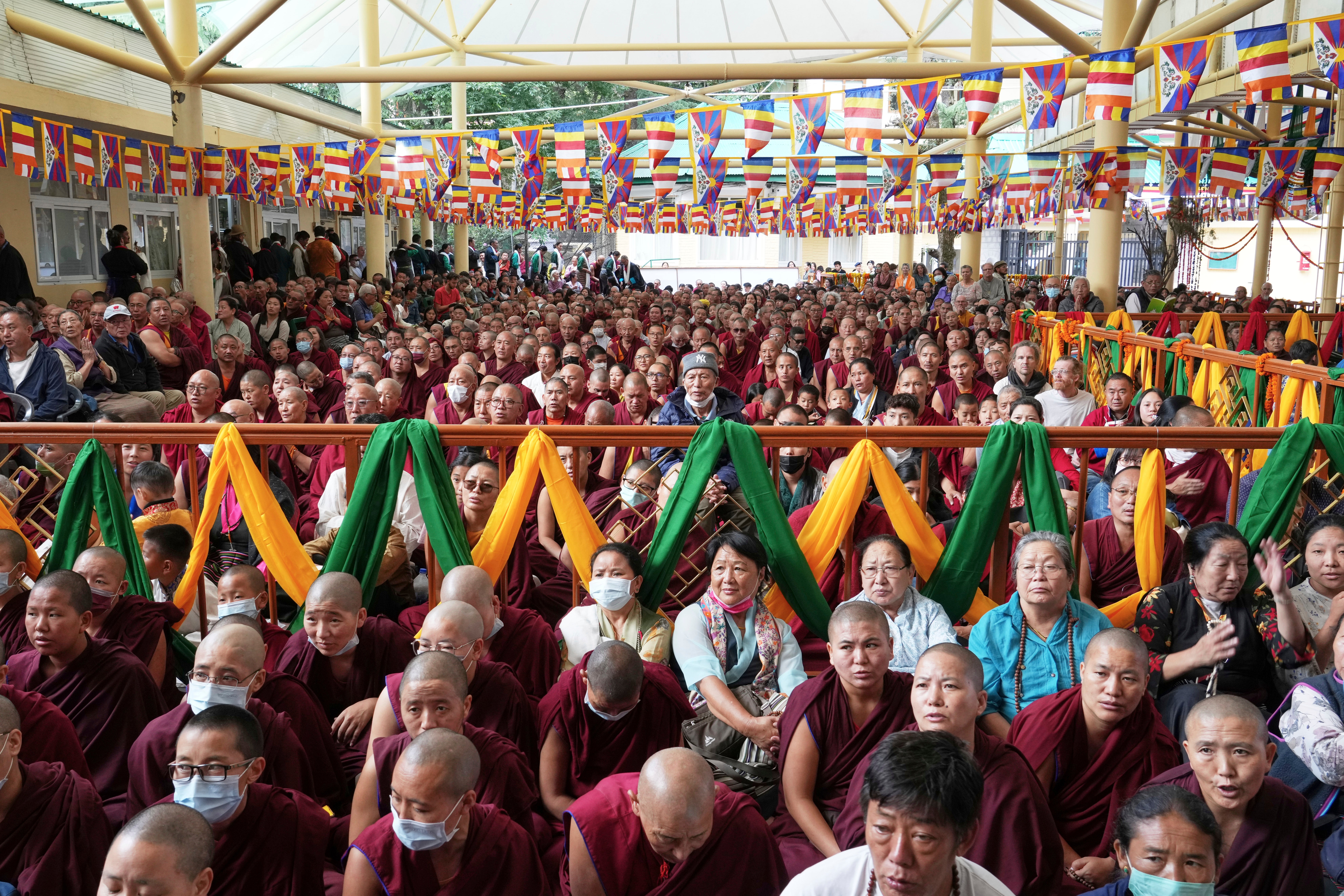As the Dalai Lama approaches his 90th birthday this Sunday, the question of his succession looms large.
The issue is captivating not only his millions of followers but also drawing significant strategic interest from global powers including China, India, and the United States.
The Nobel Peace Laureate is widely regarded as one of the world's most influential figures, with his spiritual and moral authority extending far beyond the confines of Buddhism.
Central to Tibetan Buddhist tradition is the belief that the soul of a senior monk is reincarnated after death.
This ancient practice was pivotal in identifying the 14th Dalai Lama, born Lhamo Dhondup on July 6, 1935, to a farming family in what is now Qinghai province. He was recognised as the reincarnation of his predecessor at just two years old.
According to his official website, a search party dispatched by the Tibetan government made the determination based on several auspicious signs, including a vision revealed to a senior monk. Their conviction was solidified when the young toddler reportedly identified belongings of the 13th Dalai Lama, exclaiming, "It's mine, it's mine."
In the winter of 1940, Lhamo Thondup was taken to the Potala Palace in Lhasa, the capital of today's Tibet Autonomous Region, and officially installed as the spiritual leader of Tibetans.

How will his successor be chosen?
The Dalai Lama has announced that he will be reincarnated, and that his successor will be chosen by his closest Tibetan advisers without interference from China.
In a statement issued to a gathering of the Tibetan government-in-exile on Wednesday, he said: “The process by which a future Dalai Lama is to be recognised has been clearly established in the 24 September 2011 statement which states that responsibility for doing so will rest exclusively with members of the Gaden Phodrang Trust, the Office of His Holiness the Dalai Lama.
He added: “They should consult the various heads of the Tibetan Buddhist traditions and the reliable oath-bound Dharma Protectors who are linked inseparably to the lineage of the Dalai Lamas. They should accordingly carry out the procedures of search and recognition in accordance with past tradition. I hereby reiterate that the Gaden Phodrang Trust has sole authority to recognise the future reincarnation; no one else has any such authority to interfere in this matter.”
The statement comes after the Dalai Lama’s comments in his book Voice for the Voiceless, released in March 2025, where he said his successor would be born outside China.
The Dalai Lama has lived in exile in northern India since 1959, after fleeing a failed uprising against the rule of Mao Zedong's Communists.
The Tibetan parliament-in-exile, based in the Himalayan town of Dharamshala, like the Dalai Lama, says a system has been established for the exiled government to continue its work while officers of the Gaden Phodrang Foundation will be charged with finding and recognising his successor.

The current Dalai Lama set up the foundation in 2015 to "maintain and support the tradition and institution of the Dalai Lama" with regard to his religious and spiritual duties, it says on its website. Its senior officers include several of his aides.
What is the Gaden Phodrang Trust?
The non-profit was registered in 2011 in the northern Indian town of Dharamshala, where the Dalai Lama is based. Its members include the Dalai Lama, senior monk Samdhong Rinpoche and close aides who work in the Dalai Lama's office in Dharamshala.
The Dalai Lama heads the trust and its "alternate chairperson", or the second highest official, is Rinpoche, who Tibetans believe to be the reincarnation of a previous high monk. All its members must be based in India.
The Dalai Lama and many other Tibetans fled Tibet in 1959 after a failed uprising against Chinese rule.
He has since called for a "middle-way approach" that does not seek Tibet's independence from China but demands autonomy for Tibetans to protect and preserve their culture, religion and national identity.
What does the trust do?
At the moment, the organisation's main job is to support the Dalai Lama's spiritual and humanitarian work. The Dalai Lama said in an address to a religious conference on Wednesday that members of the trust should consult the various heads of Tibetan Buddhist traditions and other senior religious figures to "carry out the procedures of search and recognition in accordance with past tradition".

In 2011, he said that he would leave "clear written instructions about this", but Rinpoche said on Wednesday that the Dalai Lama had not yet done so because he was in good health and had promised to live for many more years.
The Dalai Lama will celebrate his 90th birthday on July 6. He told Reuters in December he could live until he is 110.
There is another Gaden Phodrang non-profit in the Swiss city of Zurich. It also carries out various projects on behalf of the Dalai Lama, is headed by the Dalai Lama and has his aides as its members.
Its job is to "maintain and support the tradition and institution of the Dalai Lama with regard to the religious and spiritual duties of the Dalai Lama", it says on its website.
What does China say?
China says its leaders have the right to approve the Dalai Lama's successor, as a legacy from imperial times. A selection ritual, in which the names of possible reincarnations are drawn from a golden urn, dates to 1793, during the Qing dynasty.
Chinese officials have repeatedly said the reincarnation of the Dalai Lama should be decided by following national laws that decree use of the golden urn and the birth of reincarnations within China's borders.
But many Tibetans suspect any Chinese role in the selection as being a ploy to exert influence on the community.
It is inappropriate for Chinese Communists, who reject religion, "to meddle in the system of reincarnation of lamas, let alone that of the Dalai Lama," the Buddhist leader has said.
In his book, he asked Tibetans not to accept "a candidate chosen for political ends by anyone, including those in the People's Republic of China," referring to the country by its official name.
Beijing brands the Dalai Lama, who won the Nobel Peace Prize in 1989 for keeping alive the Tibetan cause, as a "separatist" and prohibits displays of his picture or any public show of devotion towards him.
In March 2025, a Chinese foreign ministry spokesperson said the Dalai Lama was a political exile with "no right to represent the Tibetan people at all".

China denies suppressing the rights of the Tibetan people, and says its rule ended serfdom in, and brought prosperity to, a backward region.
What role could India and the US play?
Apart from the Dalai Lama, India is estimated to be home to more than 100,000 Tibetan Buddhists who are free to study and work there.
Many Indians revere him, and international relations experts say his presence in India gives New Delhi some kind of leverage with rival China.
The United States, which faces rising competition from China for global dominance, has repeatedly said it is committed to advancing the human rights of Tibetans.
U.S. lawmakers have previously said they would not allow China to influence the choice of the Dalai Lama's successor.
In 2024, then U.S. President Joe Biden signed a law that presses Beijing to resolve a dispute over Tibet's demands for greater autonomy.
Inside the Dalai Lama’s succession and what it means for the Tibetan struggle
Dalai Lama gives long-awaited update on his reincarnation ahead of 90th birthday
Mating ‘lovebugs’ swarm city, plaguing residents
Pilots grounded after Air India flight struggles during takeoff after AI171 crash
The ‘big, beautiful’ deal India and US are rushing to seal as tariff deadline looms
Indian state proposes seven-year jail term for spreading ‘fake news’







